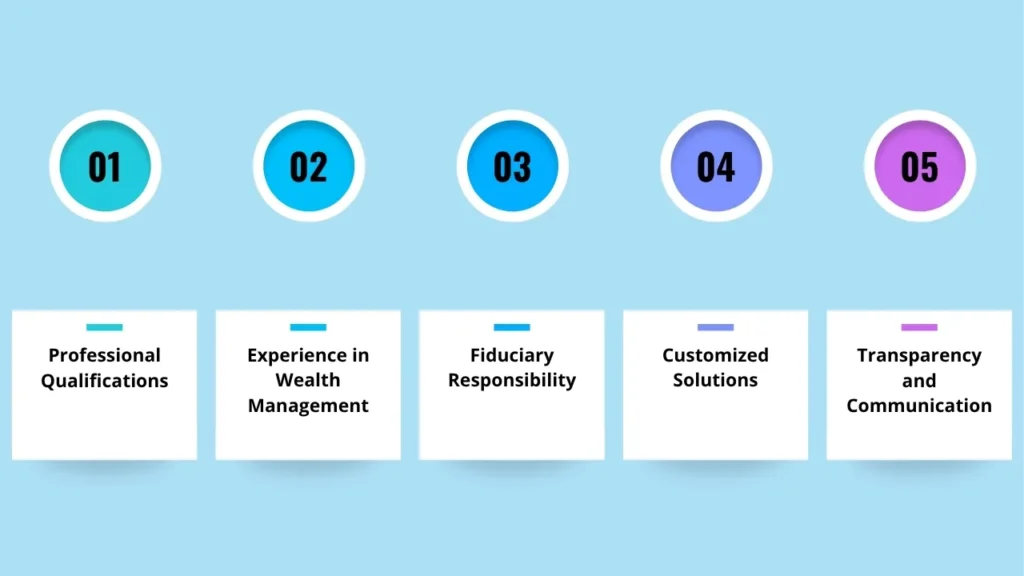Choose the right advisor for your financial goals. Choosing an advisor is a decision that will directly and significantly affect all of the components of wealth that you have built. As investments, taxes, estate planning and retirement strategies become more complicated, many people are increasingly turning to a professional known as a wealth manager.
If you’ve been asking yourself how to choose the right wealth management advisor, this complete guide covers everything—from what advisors do and their scope of expertise all the way through to making an informed decision for your goals.
What is Wealth Management?
Concerning Canary Wealth Management, it is a full service for individuals seeking to grow, protect and effectively transfer wealth. Wealth management, unlike simple financial planning—which can often get into budgeting or saving—is more of a much broader mentality.
It brings together investments, tax savings, retirement planning, estate strategies, insurance and sometimes even philanthropic goals under one big umbrella.
A wealth management advisor acts as your personal guide, focusing on devising not only asset-related strategies but also solutions that encompass your long-term objectives.
But Why It Matters Who You Turn to for Advice
Advisers are not all created equal. Some are investments, while for others it means very fee-based, tax-oriented wealth structuring. Choosing an ill-fitting option can cause your portfolio to underperform, you might miss valuable tax minimization opportunities, or financial planning and life goals may find themselves misaligned.
The right wealth management advisor:
- Provides integrated, personalized financial strategies.
- Knows your risk-and-return comfort level and matches it with your investment holdings.
- Compliance with Tax and Legal Laws.
- Regularly updates advice to reflect market, economic and personal life changes.
Desirable Wealth Management Advisor Characteristics

When trying to determine How to Select the Right Wealth Management Advisor, take into consideration these important characteristics:
1. Professional Qualifications
Seek those who are certified, such as a CFP (Certified Financial Planner), CFA (Chartered Financial Analyst), or CPA in the field of wealth management. Certifications show that a candidate is technically proficient and complies with industry standards.
2. Experience in Wealth Management
Wealth Management It has a weight of reality to it when accomplished investment advisors are in the house. Years of serving a variety of client portfolios give you greater knowledge around market cycles, not to mention tax planning and asset preservation techniques.
3. Fiduciary Responsibility
In your ideal adviser, you want someone who puts your best interest ahead of their own. This responsibility means your decisions are impartial and focused on only what is best for you in managing your wealth.
4. Customized Solutions
People have different tax situations, family structures, inheritance issues and business interests. A professional who specializes in creating personalized solutions will closely match his strategy to your objectives.
5. Transparency and Communication
Trust is built on transparency and regular communication, and fee disclosure is key to that. Make sure your adviser is communicating to you risks, costs and potential outcomes without industry jargon.
Types of Wealth Management Advisors
Different advisors bring different expertise. In order to choose well, you need to know what exists.
| Type of Advisor | Primary focus | Ideal for |
|---|---|---|
| Private Wealth Manager | High-net-worth, estate planning | Individuals with complex assets and legacies |
| Financial Planner | Higher-level financial advice, budgeting, retirement | Middle-income earners wanting a written plan |
| Investment Advisor | Portfolio management, stocks, bonds, funds | People who want market-driven growth |
| CPA/Tax Specialist | Tax-efficient strategies or estate issues | Business owners, executives, or entrepreneurs |
| Family Office | Managing most everything with money | Ultra-HNW families who run businesses |
Knowing that specialization enables you to select the appropriate professional to meet your needs.
How to hire the best Wealth Management Advisor
When trying to determine how to choose the best wealth management advisor, keep in mind these steps:
Step 1: Assess Your Needs
Know your money goals before reaching out to any professional. And do you want investment advice to plan for retirement, seek tax efficiency, or transfer wealth from one generation to the next? While filtering advisors who don’t fit, the exercise aids in clarifying objectives.
Step 2: Research and Shortlist
Ask for recommendations from coworkers, friends or industry organizations. Vet professionals online via regulatory bodies and wealth management firm client reviews. Make a shortlist of 3–5 advisors after doing your research.
Step 3: Check for Credentials and Experience
Ask for licenses, certificates and professional history evidence. Make sure they have a background in wealth management that resembles your situation.
Step 4: Understand Their Approach
Inquire about how they build portfolios, handle tax efficiency or tweak financial plans in times of market stress. A philosophy of advising should dovetail with your financial comfort zone.
Step 5: Fee and Commission Models Comparison
Some charge a fixed fee, others charge a percentage of AUM, and some earn commission on products. A transparent fee schedule means that none of the hidden costs will eat away at your returns.
Step 6: Conduct Face-to-Face Meetings
An in-person meeting will give you a sense of someone’s mannerisms, how comfortable they seem to be with you, and whether or not they instill your confidence. A good relationship means better and easier future cooperation.
Step 7: Test the Waters with a Trial Period
Perhaps start with a service scope or more limited asset amount to gauge effectivity. Over time, grow it to a full relationship if they work out as you hope.
Common Mistakes to Avoid
Most end up choosing one because of impulse or not enough research. Avoid these pitfalls:
- Picking solely based on brand and not research of the specific advisor.
- Not paying attention to fee specifics that can decrease effective return.
- Failing to check fiduciary responsibility.
- Outside of this communication-style thing, big words get in the way.
- Hiring advisers who are specialists in one area rather than the whole of wealth management.
How Advisors Add Value
What a Wealth Management advisor does for you A good wealth management advisor doesn’t just manage money; they also:
- Integrate all of your financial life under one plan.
- Provide strategies tailored to each individual circumstance based on level of risk.
- Discipline retail investors when the market is hot and cold.
- Stay up on regulatory changes that affect taxes and estates.
- Develop a plan to transfer wealth in an efficient way.
Final Words
The ability to choose the right wealth management advisor is a matter of recognizing needs, evaluating expertise, and making certain values and goals are aligned.
These relationships, based on trust, openness and a plan that addresses future needs for generations—not just the next year or decade—can help secure and extend your financial success.
So with a little bit of reasoned consideration, you can choose the right wealth management partner and feel comfortable that your future is secure.
Frequently Asked Questions
1. What is the minimum amount for Wealth Management?
There is no hard and fast minimum, although many firms have a client base that includes individuals with at least $250,000 in investable assets. Yet even smaller investors taking a look at complex strategies can gain.
2. How can I determine if an advisor is trustworthy?
Look for fiduciary responsibility, professional credentials and memberships in regulatory bodies. Reviews, recommendations and references can also provide reassurance.
3. Which fee structure do I want to be on?
I prefer the flat fee or AUM (percentage-based), as they are more clear. Avoid models that are commission-based relative to product sales.
4. How is wealth management different from traditional financial planning?
Yes. Whereas financial planning often involves short-term budgeting and saving, wealth management focuses on longer-term investment, retirement, and tax and estate planning strategies.
5. How frequently should I revisit my plan with a professional?
Annually, if possible; or after moments of significant life or economic change. Periodic reviews ensure strategies are adapted to the realities on the ground.

Leave a Reply